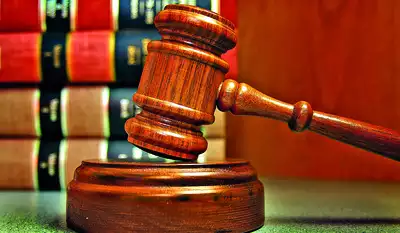Supreme Court declares that such reservation can be formulated in any scholarly institution, including private institutions, whether aided or unaided, except youth educational institutions enclosed under Article 30(1).
The requisitions challenge the reality of the Constitution (103rd) Amendment Act 2019. Economic reservation in employment and education was formulated to be empowered by depositing section (6) in Articles 15 and 16 of the Constitution through the amendments.
An Economically Weaker Section (EWS) in India is a subcategory of people having an annual family income less than ₹8 lakh (US$10,000) and who do not pertain to any category such as SC/ST/OBC across India, nor MBC in Tamil Nadu.
An aspirant who does not fall under SC/ST/OBC and obeys the EWS economic norms is to be part of the EWS category. Mentioned supreme court
Eligibility Criteria to Avail EWS well-being
The applicant must belong to the General category
An aggregate accumulated income of the family should be less than 8 lakhs yearly (including earnings from the business, farming, and professional services)
The person or the family members should live near slum areas, rural or urban
Major income citation is through manual or household labor
Member of the National Rural Employment Guarantee Act (NREGA)
Ownership of agricultural land by the individual or family not more than 5 acres
Relating to a female-headed household
Schooling of both the parents below higher secondary in matriculation schools
If the applicant acquires a household property, it should not exceed more than 1000 sq. ft
If the applicant owns a residential plot, it should not surpass more than 100 sq. yards in a notified community sector and 200 sq. yards in a non-notified community sector
Councils that can hand out an ‘Income and Asset Certificate’ by EWS

The judiciary is an especially auditory statement on three questions:
Whether the 103rd Constitution Amendment can be said to breach the fundamental structure of the Constitution by allowing the State to formulate specific provisions, including reservation, based on economic criteria?;
Whether the 103rd Constitution Amendment can be said to breach the essential hierarchy of the Constitution by authorizing the State to make personal prerequisites about admission to private unaided institutions?; and
Whether the 103rd Constitution Amendment can be said to breach the important arrangement of the Constitution in excluding the SEBCs/OBCs/SCs/STs from the domain of EWS reservation?
EWS allowance ravages “equality” which is the courage of the constitution: Supreme Court told

Senior Advocate Meenakshi Arora and Dr. Mohan Gopal under debate of EWS:
Economic weakness outcomes from social and educational backwardness. It is our concern that all sections have a voice in hallways of power.
EWS reservation is pointed at individuals. But Article 2 of the Constitution concentrates on intergroup equivalence. Now I am moving to the infringement of the fundamental structure principle.
This amendment invalidates the basic structure doctrines’ core. Inter-group equality, Dr. Gopal explained.
He also acknowledged that the 103rd amendment existed an “attack on the constitutional conception of civil justice” as it opposes the “basic agenda of Supreme Court to behave toward unequal as equals” and that the modification “is nonentity but an onslaught on the Constitution and it is similar to stabbing the Constitution at its heart.”
One of the primary assertions extended by Dr. Gopal was that EWS reservation is aimed at to benefiting forward classes.
He furthermore suspected the ₹8 lakh annual income limit which discriminates whether a person plunges within the EWS sector.
A universal study report asserts that 96% of the Indian community earns less than ₹25,000.
“We need to induce to this 96%. If we eat up the reservation for backward classes then the whole strategy for an equivalency gets offended. If this amendment is upheld then it will be a conspiracy on the fiction of Dr. BR Ambedkar,”
He also recommended that this amendment governs an ethical obstacle of needy financial decision-making and gratifications such attitude because the benchmark for the EWS quota is income.
“We do not want an oligarchy to sanction the country. Not a forward class oligarchy or backward category oligarchy as when a thing occurs policies are all shaped assisting the same. We want manifestation. Even backward sections in Brahmins have given reservations,”.
He also insisted that declarations of the government that the 103rd amendment executes the objective of Article 46 were a “blatant lie”.
If this was certainly economic reservation, it would be given to poor people irrespective of caste. Regardless that was not done”, he pointed up.
Senior Advocate Meenakshi Arora for the supplicant also accepted that the criteria for EWS cut-off was a nebulous one and that “economic drawback is neither ingrained nor enduring” but is “temporary and it’s established on individual disadvantaged which can be cured with money.”
Focused on the statement which has been faced by the people i.e., “This morning I get an admission into an institute under EWS classification. By afternoon my father gets a job which is considerably more than 8 lakhs and even then I am EWS. This shows how nebulous the criteria are. This prohibits the prevalence of population. To deceive that EWS and backward category both necessity reservation is not reasonable,” Arora exaggerated
Senior Advocate Sanjay Parikh, also commenced for the petitioners contended that the significance is bare that a backward person cannot take part in the EWS quota but if the backward class person comes under the EWS models, still they aren’t availing of the EWS advantages.”
“This is what incidental in 103rd amendment,” Parikh added up.
The statement confesses that scheduled caste and scheduled tribes be preserved.. but they are relatively much excluded.”













